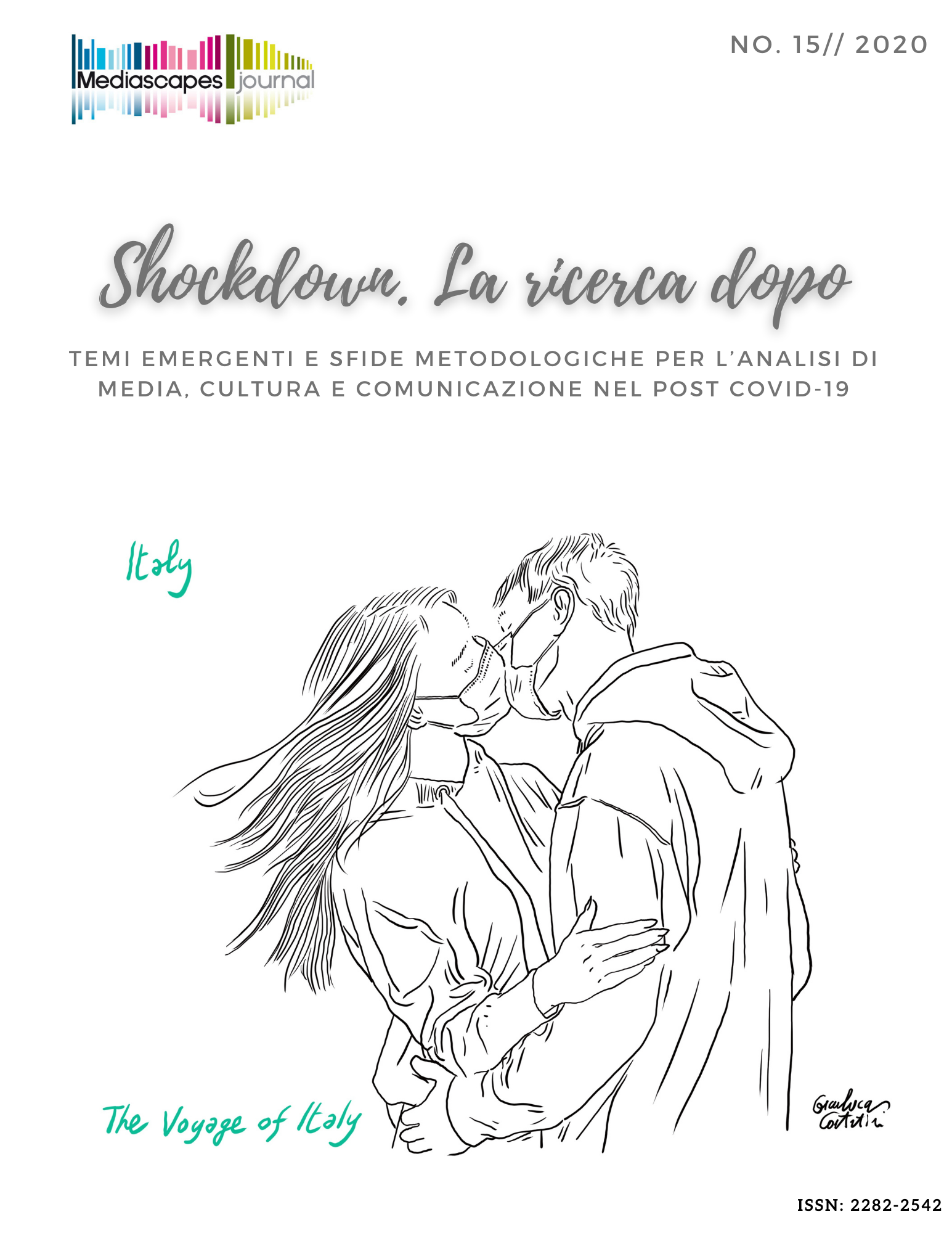Il dispositivo teatrale alla prova del Covid-19. Mediatizzazione, liveness e pubblici
Parole chiave:
Theatre mediatisation, Digital liveness, Italian theatre, COVID-19Abstract
The COVID-19 emergency had a profound impact on the artistic and cultural sectors, and on performing arts in particular. The lockdown required the suspension of all live performances and rehearsals, including the cancellation of seasons and festivals. Because physical proximity is an essential component of the live shows, this sector will be on pause longer than the others. Since the early stages of the lockdown, the Italian theatre field developed several online initiatives to counterbalance the suspension of its activities. These efforts aimed at keeping the relationship with the remote theatre audiences, by extending the presence of artists, theatres and performances in the online context. However, they also provided an opportunity to reflect at large on the digital transformations of performing arts. The following contribution reflects on how we are researching the online response of the theatrical sector from the perspective of sociology and media studies. The paper aims to contextualise the phenomenon within the processes of theatre mediatisation and digital transformation of liveness, and to the present what we think are the most urgent research questions in this direction. The first part of the article introduces the theoretical premises of the investigation. We present the frame of theatre mediatisation by analysing three interrelated processes: the mediatisation of dramaturgy through the concept of transmedia; the mediatisation of theatrical presence, with the debate on digital liveness, and the mediatisation of the theatrical relationship through social media. The second part will analyse some of the main online initiatives of the theatrical sector, observing how they fit into the previously introduced mediatisation processes. The third part will observe how users have responded to the initiatives presented on social media by some of the main Italian theatres. In the conclusions, we will discuss which research questions we consider crucial to connect the analysis of this critical moment to the main themes of sociological and media studies research on performing arts.
Pubblicato
Come citare
Fascicolo
Sezione
Licenza
Gli autori che pubblicano su questa rivista accettano le seguenti condizioni:
- Gli autori mantengono i diritti sulla loro opera e cedono alla rivista il diritto di prima pubblicazione dell'opera, contemporaneamente licenziata sotto una Licenza Creative Commons - Attribuzione che permette ad altri di condividere l'opera indicando la paternità intellettuale e la prima pubblicazione su questa rivista.
- Gli autori possono aderire ad altri accordi di licenza non esclusiva per la distribuzione della versione dell'opera pubblicata (es. depositarla in un archivio istituzionale o pubblicarla in una monografia), a patto di indicare che la prima pubblicazione è avvenuta su questa rivista.
- Gli autori possono diffondere la loro opera online (es. in repository istituzionali o nel loro sito web) prima e durante il processo di submission, poiché può portare a scambi produttivi e aumentare le citazioni dell'opera pubblicata (Vedi The Effect of Open Access).


